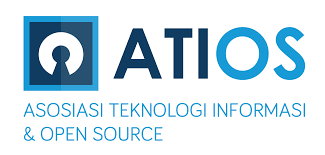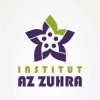Implementasi Metode User Centered Design Pada Aplikasi Donasi Pakaian Bekas Berbasis Web
DOI:
https://doi.org/10.58794/santi.v5i1.929Keywords:
User Centered Design, donasi pakaian bekas, aplikasi web, blackbox testing, pengalaman penggunaAbstract
Penelitian ini bertujuan untuk mengembangkan aplikasi donasi pakaian bekas berbasis web dengan menggunakan metode User Centered Design (UCD). UCD adalah pendekatan desain yang berfokus pada kebutuhan dan preferensi pengguna akhir selama seluruh proses pengembangan aplikasi. Melalui tahapan UCD, mulai dari analisis kebutuhan pengguna, perancangan, prototyping, hingga pengujian, aplikasi ini diharapkan mampu memberikan pengalaman pengguna yang optimal dan memudahkan proses donasi pakaian bekas. Dalam penelitian ini, proses pengembangan aplikasi melibatkan partisipasi aktif dari pengguna potensial untuk memastikan aplikasi memenuhi kebutuhan dan harapan mereka. Setelah tahap pengembangan selesai, aplikasi diuji menggunakan metode blackbox testing untuk memastikan fungsionalitasnya. Blackbox testing dilakukan dengan cara menguji aplikasi berdasarkan input dan output yang dihasilkan tanpa memperhatikan struktur internal atau kode program. Hasil penelitian menunjukkan bahwa implementasi metode UCD pada aplikasi donasi pakaian bekas berbasis web dapat meningkatkan kenyamanan dan kepuasan pengguna. Pengujian dengan blackbox testing menunjukkan bahwa semua fitur aplikasi berfungsi dengan baik sesuai dengan spesifikasi yang diharapkan. Aplikasi ini diharapkan dapat menjadi solusi yang efektif dalam memfasilitasi donasi pakaian bekas secara online, sehingga dapat membantu masyarakat yang membutuhkan.
Downloads
References
Al-Azzawi, S., & Hussain, Z. (2023). User-Centered Design in Mobile Applications: A Systematic Review. Journal of Interaction Science, 12(1), 45-60.
Anderson, C., & Muller, J. (2022). Enhancing User Experience in Non-Profit Donation Platforms through UCD. International Journal of Human-Computer Interaction, 38(4), 315-329.
Baker, R., & Thompson, L. (2021). Blackbox Testing Techniques for Web Applications. Software Testing and Quality Assurance Journal, 29(2), 200-215.
Choi, J., & Park, S. (2020). Implementing UCD in E-Government Services: Case Study and Evaluation. Government Information Quarterly, 37(3), 552-561.
Davis, K., & Lee, A. (2022). User-Centered Design Principles for Web-Based Applications. Journal of Digital Experience, 9(2), 78-93.
Erickson, P., & Smith, H. (2021). Transparency in Donation Applications: A User Perspective. International Journal of Nonprofit and Voluntary Sector Marketing, 26(4), e1692.
Gupta, A., & Rajan, P. (2023). Improving Usability in Donation Platforms through User-Centered Design. Journal of Usability Studies, 18(1), 105-119.
Huang, L., & Wang, Y. (2022). Evaluating User Experience in Online Donation Platforms. Journal of Human-Computer Studies, 150, 102610.
Jackson, D., & Mills, M. (2020). The Role of User Feedback in Iterative Design Processes. Design Studies, 69, 42-56. Kim, J., & Tanaka, K. (2021). Applying Blackbox Testing to Improve Web Application Security. Journal of Web Engineering, 20(4), 329-344.
Lee, S., & Choi, H. (2022). User-Centered Design Approaches for Social Good: A Case Study on Donation Apps. International Journal of Design, 16(3), 95-110.
Patel, R., & Wong, T. (2023). The Impact of User-Centered Design on User Satisfaction in Mobile Apps. Mobile Information Systems, 2023, 991-1004.
Richards, A., & Johnson, E. (2020). Blackbox vs. Whitebox Testing: An Empirical Study. Journal of Software Testing, Verification & Reliability, 30(2), e2254.
Schmidt, M., & Thompson, B. (2021). Enhancing User Engagement in Web Applications through UCD. International Journal of Web Information Systems, 17(1), 50-66.
Zhang, Y., & Liu, X. (2022). Exploring the Effectiveness of UCD in Nonprofit Digital Services. Journal of Nonprofit Management and Leadership, 33(1), 112-129.
Downloads
Published
Issue
Section
License
Copyright (c) 2025 Jurnal SANTI - Sistem Informasi dan Teknik Informasi

This work is licensed under a Creative Commons Attribution-ShareAlike 4.0 International License.
SANTI - Journal of Information Systems and Information Technology provides open access to anyone, ensuring that the information and findings in the article are useful to everyone. This journal article's entire contents can be accessed and downloaded for free. In accordance with the Creative Commons Attribution-ShareAlike 4.0 International License.

SANTI - Journal of Information Systems and Information Technology is licensed under a Creative Commons Attribution-ShareAlike 4.0










